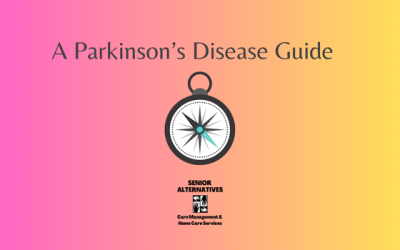December 9, 2021

Older adults can take steps to stay safer on the roads.
Driving helps older adults—persons 65 and older—stay mobile and independent. However, as we age, declines in vision and cognition (ability to reason and remember), and physical changes might affect driving. Certain medical problems such as heart disease, dementia, sleep disorders, and limited hearing and vision place older adults at an increased risk of car crashes. Additionally, medicines, both prescription and over the counter, such as those used for sleep, mood, pain, and/or allergies among others might affect driving safety.
Older drivers are also at an increased risk of being injured or killed in a crash due to increasing frailty and underlying health problems.
In 2016, almost 290,000 older adults were injured and more than 7,400 died in traffic crashes.
Get the facts:
One in 6 drivers in the United States are 65 years or older.
Older adult drivers are more than twice as likely to report having a medical problem that makes it difficult to travel as compared with drivers ages 24‒64.
Four in five older adults take one or more medications daily. Physical changes that occur with age can change the way the body reacts to medicines, causing more side effects and affecting the ability to concentrate and drive safely.
Here are some steps that older adults can take to stay safe on the road:
Discuss any medical issues with your doctor to determine if they might affect your driving.
Discuss stopping or changing your medications with your pharmacist or doctor if you experience any side effects that could interfere with safe driving such as blurry vision, dizziness, sleepiness, confusion, fatigue, and/or loss of consciousness.
Have your eyes checked by an eye doctor at least once a year. Wear glasses and corrective lenses as directed.
Plan your route before you drive.
Consider potential alternatives to driving, such as riding with a friend, using public transit, or car ride services.
*https://www.cdc.gov/features/older-driver-safety/index.html
#seniorhelpers #athomecare #homecareproviders #elderlyassistance #seniorhomecare #caregiver #elderlycare #elderlyservices #homecareservices #careagency #careagency #seniorassistance #servicesforseniors #careathome #inhomecare #careinhomes #careservices #elderlycaregiver #memorycare #homecare #seniorcare
If you would like to join the Senior Alternatives team, we invite you to reach out to us! You can also make a donation directly on our team’s page. The more we can raise for researching this fatal disease, the closer we come to finding a cure!
Related Articles
Why People in Blue Zones Thrive and Live Longer
Blue Zones are regions where people live longer, healthier lives compared to the global average. These areas have been studied extensively to find common denominators and answers about what makes these places unique. One of the key components of these lifestyles is community engagement, or having a strong sense of belonging and support from others. Read on to know more about Blue Zones and how we can duplicate their lifestyle and best practices.
Understanding Parkinson’s Disease
April is Parkinson’s disease awareness month, with that in mind we put together a blog
A guide to effectively enhance, remodel or retrofit homes and environments for older adults.
This week, we created a guide on how to accommodate a home or environment for older adults, especially people with memory loss which can be vital for their comfort and well-being. Whether the memory loss stems from conditions like Alzheimer’s or short-term impairments, retrofitting a home can significantly enhance safety, accessibility, and overall quality of life.





